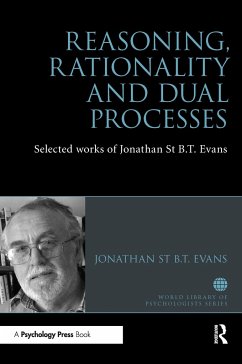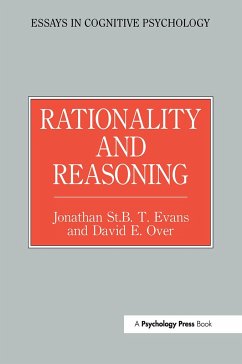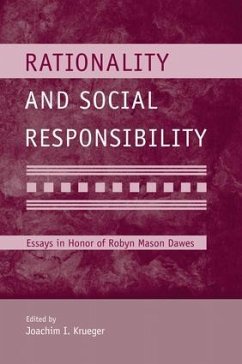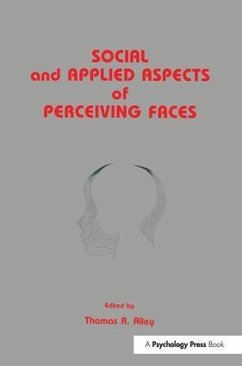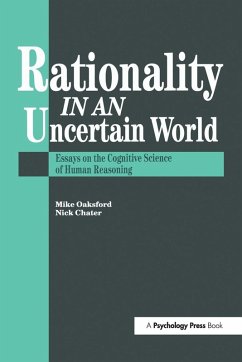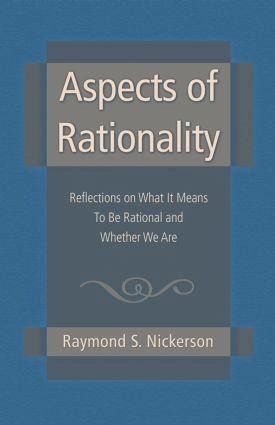
Aspects of Rationality
Reflections on What It Means To Be Rational and Whether We Are
Versandkostenfrei!
Versandfertig in 1-2 Wochen
72,99 €
inkl. MwSt.
Weitere Ausgaben:

PAYBACK Punkte
36 °P sammeln!
What does it mean to be rational - to reason well and effectively? How does rationality, broadly conceived, relate to the knowledge one acquires, the beliefs one forms, the explanations one constructs or appropriates, the judgments and decisions one makes, the values one adopts? What is the character of human reasoning and, in particular, does it tend to be rational? Much has been written about human rationality - or lack thereof. In recent years, some writers have focused attention on the numerous ways in which people appear not to be rational, at least if being rational is taken to mean alwa...
What does it mean to be rational - to reason well and effectively? How does rationality, broadly conceived, relate to the knowledge one acquires, the beliefs one forms, the explanations one constructs or appropriates, the judgments and decisions one makes, the values one adopts? What is the character of human reasoning and, in particular, does it tend to be rational? Much has been written about human rationality - or lack thereof. In recent years, some writers have focused attention on the numerous ways in which people appear not to be rational, at least if being rational is taken to mean always thinking or behaving in accordance with some normative standard. Others have argued that, if human reasoning is as flawed as this work suggests, it is a wonder that we, as a species, are around to notice the fact. This book examines much of the experimental research on reasoning as it relates to a variety of conceptions of rationality, not limited to conformity of thought and behavior or to the dictates of one or another normative system. The discussion focuses on specific topics that represent essential aspects of any adequately inclusive conception of rationality: intelligence and knowledge; beliefs; goals, values and affect; explanations; judgment and choice; understanding and wisdom.





